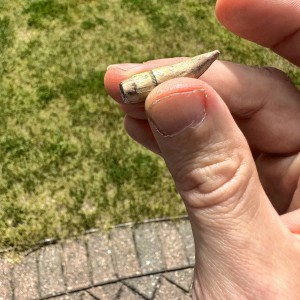Let’s Talk Relationships: Red flags: Spotting narcissistic abuse
| Published: 06-02-2023 3:11 PM |
Abuse in relationships may not always be easily identifiable when there is narcissism involved. Yet “narcissistic abuse” is just as damaging and unacceptable as any other form of abuse. No matter where narcissistic people fall on the narcissism continuum (from low to high), they generally display a predictable pattern of behaviors. These include: an excessive need for admiration and attention, a grandiose sense of self-importance, lack of empathy for others, and an inability to regulate their own emotions.
After an initial “idealization phase,” in which they feel their partner can do no wrong, narcissists’ demeaning and devaluing behaviors such as lashing out with blame, criticism and accusations become so pervasive in the relationship that it rises to the level of abuse.
In contrast to the painful and dysfunctional type of relationship described above, Melanie Tonya Evans, a world expert on narcissistic abuse, lays out the essential components of a healthy relationship: “When truly loving someone, we must be motivated to know another’s wants, needs, and feelings and provide encouragement and support. We take pleasure in their happiness and try not to hurt them. When we love, we show active concern for their life and growth. Caring involves offering attention, respect, support, compassion, and acceptance.”
There is no question that narcissism can have debilitating effects on relationships, causing much pain and damage to the psyches of those on the receiving end. Those suffering from narcissistic abuse often experience some or all of these numerous feelings: confusion, depression, anxiety, seething anger, walking on eggshells, feeling trapped, isolation, decreased self-worth, second-guessing one’s own feelings and perceptions, a loss of one’s personality, loneliness, having trouble making decisions, loss of vitality for life, difficulty setting personal boundaries, fatigue and self-blame.
The very nature of narcissism involves an impairment in the ability to accurately self-reflect. Since the narcissistic person cannot recognize how their own dysfunction has inflicted so much pain on their partner, they are generally unable to make sincere changes.
If you find yourself identifying with the symptoms of narcissistic abuse, here are my suggestions:
■Build a stronger support system by confiding in trusted people in your life.
■Know that the narcissistic partner’s behavior has nothing to do with you. You absolutely did not cause any mistreatment.
Article continues after...
Yesterday's Most Read Articles
 Holyoke man finds bear paw in his yard
Holyoke man finds bear paw in his yard
 Developer lands $400K loan for affordable housing project in Easthampton mill district
Developer lands $400K loan for affordable housing project in Easthampton mill district
 Petition to block auto dealership on King Street falters in Northampton
Petition to block auto dealership on King Street falters in Northampton
 Fearful Belchertown residents blame stray bullets on nearby gun club, appeal to town for help
Fearful Belchertown residents blame stray bullets on nearby gun club, appeal to town for help
 South Hadley man fatally shot in attempted robbery
South Hadley man fatally shot in attempted robbery
 First look at how little Amherst’s police alternative being used called troubling
First look at how little Amherst’s police alternative being used called troubling
■Strengthen and protect yourself by spending time with healthy people and activities that are restorative, enjoyable and fulfilling.
■Educate yourself by reading, listening to podcasts, watching videos and registering for programs (often free). I recommend the following resources offered by leading experts in the prevention of, and recovery from, narcissistic abuse: https://www.melanietoniaevans.com, https://doctor-ramani.com, and https://www.lisaromano.com.
■Come to terms with the limited mindset of the narcissistic person. They are incapable of seeing their flaws that are causing so many problems, so it is important to not have false hope that things can get significantly better.
■Work with a therapist who is knowledgeable about narcissism and can offer you support, understanding, and help in exploring your options.
It is important to know that there are predictable stages that narcissistic people go through when their significant other decides to end the relationship. As Evans describes, “They may beg, shower you with compliments, lavish you with expensive gifts, or profess their undying love for you.” This is called “love bombing,” and it is essential to understand that these are strategies to get you to change your mind.
On the other hand, you may also get blamed for being “the problem,” for not working on the relationship hard enough, or for not knowing what “real love” is. No matter what they say or how they behave, stay aligned with your path of moving forward in your life, which needs to take center stage!
If you are dating or in a new relationship, the following questions can serve as a guide to the “red flags” of narcissism:
■Does the pacing of the relationship feel comfortable to you, or do you feel pressured to make a commitment too early?
■Does this person seem possessive? Are they constantly checking on you?
■Do they respect your limits and boundaries?
■Are they very irritable and short-tempered?
■Are you feeling doubts in your gut about pursuing the relationship?
■Do they make demeaning and critical remarks about others?
■Are you overwhelmed by their excessive attention and compliments, along with how “sure” they feel about you, despite not knowing you very well?
■Are you beginning to feel a lack of autonomy?
■Do you feel overpowered by their needs?
Whether you are currently involved with a narcissistic partner, are recovering from a past involvement, or want to choose a new partner with clarity and confidence, I am cheering you on to have healthy, thriving relationships. The only way you can do this is by prioritizing yourself and your mental, physical, and emotional well-being. Know that you have the power to make the right choices in love. You never need to give up your sense of safety and security for anyone. To love and be loved are universal needs. Let’s make sure it is healthy love.
Amy Newshore is a couples therapist/coach who earned her Masters in Clinical Mental Health Counseling at Antioch New England University and went on to train in the Developmental Model for Couples Therapy along with NonViolent Communication which serve as the foundation of her work as a Relationship Coach. For more information visit her website at www.coachingbyamy.com.
]]>

 Valley Bounty: Grass-fed animals that feed the grass: Gwydyr Farm in Southampton focuses on ‘restoring the connection between land, food and people’
Valley Bounty: Grass-fed animals that feed the grass: Gwydyr Farm in Southampton focuses on ‘restoring the connection between land, food and people’ Weekly Food Photo Contest: This week’s winner: Mary Chicoine of Easthampton
Weekly Food Photo Contest: This week’s winner: Mary Chicoine of Easthampton  Speaking of Nature: A romantic evening for two birders — To hear the wonderful sounds of the Saw-whet Owl one must go outside at night
Speaking of Nature: A romantic evening for two birders — To hear the wonderful sounds of the Saw-whet Owl one must go outside at night Speaking of Nature: Where have all the birds gone?: They’re there, and here’s a handy tool to keep track of their appearances
Speaking of Nature: Where have all the birds gone?: They’re there, and here’s a handy tool to keep track of their appearances
